
 |
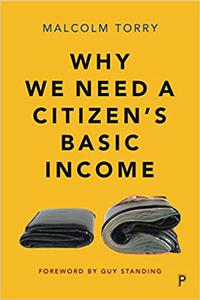 Malcolm Torry, "Why We Need a Citizen's Basic Income" English | ISBN: 1447343158 | 2018 | 256 pages | EPUB | 2 MB In the five years since Money for Everyone was published the idea of a Citizen's Basic Income has rocketed in interest to an idea whose time has come. In moving the debate on from the desirability of a basic income this fully updated and revised edition now includes comprehensive discussions on feasibility and implementation. Using the consultation undertaken by the Institute of Chartered Accountants in England and Wales as a basis, Torry examines a number of implementation methods for Citizen's Basic Income and considers the cost implications. Including real-life examples from the UK, and data from case studies and pilots in Alaska, Namibia, India, Iran and elsewhere, this is the essential research-based introduction to the Citizen's Basic Income. 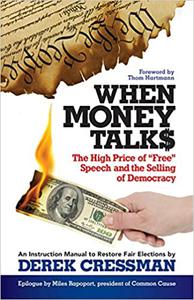 Derek Cressman, "When Money Talks: The High Price of Free Speech and the Selling of Democracy" English | ISBN: 1626565767 | 2016 | 240 pages | EPUB | 2 MB Special-interest money is destroying our democratic process. But now that the Citizens United decision has thrown out campaign spending limits as abridgments of free speech, Americans want to know what they can do about it. Derek Cressman gives us the tools, both intellectual and tactical, to fight back. 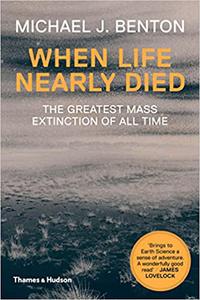 Michael J. Benton, "When Life Nearly Died: The Greatest Mass Extinction of All Time" English | 2015 | ISBN: 0500291934 | EPUB | pages: 352 | 21.5 mb "The focus is the most severe mass extinction known in earth's history. The science on which the book is based is up-to-date, thorough, and balanced. Highly recommended." ―Choice 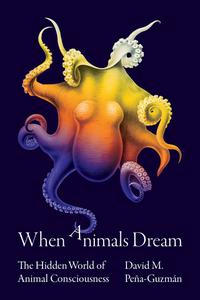 When Animals Dream: The Hidden World of Animal Consciousness by David M. Peña-Guzmán English | June 21st, 2022 | ISBN: 0691220093 | 272 pages | True EPUB | 5.46 MB A spellbinding look at the philosophical and moral implications of animal dreaming 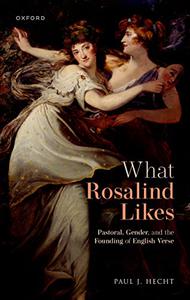 What Rosalind Likes: Pastoral, Gender, and the Founding of English Verse by Paul J. Hecht English | June 23, 2022 | ISBN: 0192857207 | True EPUB | 224 pages | 5.4 MB What Rosalind Likes begins with the strange ferocity of Elizabethan responses to poetry: a woman named Rosalind expresses scorn for a shepherd's poems, and a character in a play loses his temper and storms off stage at the sound of a blank verse line. What are these people so angry about? Thus begins a journey into a world where the details of poetic form and vagaries of Latin translation are caught up in the dynamics of gender, sexuality, class, and race, and power, where too much alliteration, for example, could destabilize your gender or pose a threat to national security. Situated in the crucial final two decades of the sixteenth century, What Rosalind Likes takes three figures named "Rosalind" in works by Spenser (The Shepheardes Calender), Lodge (Rosalynde), and Shakespeare (As You Like It) to create a new approach to literary history and feminist criticism. 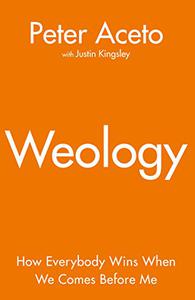 Peter Aceto, Justin Kingsley, "Weology: How Everybody Wins When We Comes Before Me" English | 2015 | ISBN: 1443429503, 1443429511 | EPUB | pages: 320 | 0.5 mb Canada's most engaging banker shares his strategies for operating in a radically different way in our ever-changing business world. 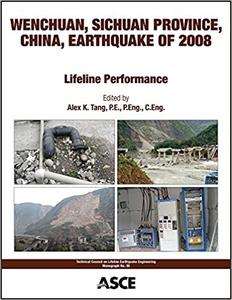 Alex K. Tang, P.E., P.Eng., "Wenchuan, Sichuan Province, China, Earthquake of 2008: Lifeline Performance (TCLEE 39)" English | 2014 | pages: 317 | ISBN: 0784413339 | PDF | 105,1 mb On May 12, 2008, an earthquake with an epicenter in Yingxiu struck a mountainous region 90 km northwest of Chengdu, Sichuan Province, China, and affected an estimated 4.6 million people. Extensive and massive landslides and rockslides occurred following the 7.9 magnitude event, rendering many towns and villages across Sichuan, Shaanxi, and Gansu provinces inaccessible. Emergency services, rescue, and relief were extremely difficult. This TCLEE Monograph discusses the following lifelines with recommendations for improving performance: transportation infrastructure; electric power systems; potable water systems and dams; telecommunications systems; and residential and public buildings, including schools. General seismology of the event, geotechnical features of the area, and a discussion of the emergency response efforts and lessons learned are also included. TCLEE 39 will be of interest to civil engineers, emergency managers and planners, and government officials charged with improving resilience of lifeline infrastructure systems during earthquakes, landslides, and rockslides. 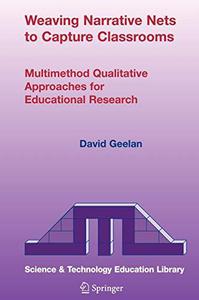 Weaving Narrative Nets to Capture Classrooms: Multimethod Qualitative Approaches for Educational Research By David Geelan (auth.) 2004 | 190 Pages | ISBN: 1402038569 | PDF | 2 MB If you're the kind of reader who usually skips the Preface (I am), you can certainly do that. It's probably valuable, though, for me to spend a little time describing the structure of this book to orient you to the way the argument unfolds. My intention was to try to find the best possible blend of theory and practice. I believe there are plenty of excellent books describing the theoretical underpinnings of qualitative research in education (Denzin & Lincoln, 1994, 2000; Eisner, 1998; Guba & Lincoln, 1989; Lincoln & Guba, 1985). A number of those books are cited here, and their arguments summarized. There are also books that report qualitative studies using narrative methods (Melko, 1998; Harold, 2000; Wolcott, 1973). There are fewer books that focus on describing in detail how to conduct these studies (Anderson, Kerr & Nihlen, 1994; Van Manen, 1990; Wolcott, 1990) for an audience that is not already familiar with both the methods and the philosophical commitments that underpin qualitative research. This book is intended to do all of these things to some extent, or to refer you to other authors who I think do them well, but its original contribution is in using as a concrete example a particular research study that I completed. This allows me to reflect on the processes and practices, and particularly the choices, involved in qualitative classroom research, and to illustrate those reflections in a very practical way. 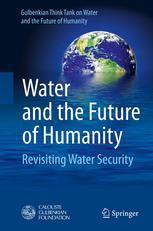 Water and the Future of Humanity: Revisiting Water Security By (auth.) 2014 | 241 Pages | ISBN: 3319014560 | PDF | 5 MB This unique, engaging, and highly authoritative volume enlightens readers on changes needed in the way society accesses, provides, and uses water. It further shines a light on changes needed in the way we use food, energy, and other goods and services in relation to water, and offers projections and recommendations, up to 2050, that apply to water access challenges facing the poor and the common misuse of water in industry, agriculture, and municipalities. Written by an unparalleled slate of experts convened by the Calouste Gulbenkian Foundation, the book takes on one of the most critical issues on the planet today. In a frank yet optimistic assessment of major developmental challenges, but also opportunities, facing future generations, the author elucidates linkages between water and a range of other drivers from various disciplinary and stakeholder perspectives. Ultimately portraying the belief that Humanity can harness its visionary abilities, technologies, and economic resources for increased wellbeing and sound stewardship of resources, the book presents an optimistic statement stressing actions scientists, policy makers, and consumers can and must take to meet the water management challenges of a warming planet anticipating nine billion inhabitants by 2050.Gulbenkian Think Tank on Water and the Future of Humanity: Benedito Braga, Pres. World Water Council & Prof. of Civil Engineering, Univ. of São Paulo, Brazil; Colin Chatres, Director General of the International Water Management Institute, Sri Lanka; William J. Cosgrove, Pres. of Ecoconsult Inc. & Senior Adviser for the UN World Water Development Report, Canada; Luis Veiga da Cunha, Prof. Environmental Science and Engineering, Universidade Nova de Lisboa, Portugal; Peter Gleick, Pres. of the Pacific Institute, USA; Pavel Kabat, Director, International Institute for Applied Systems Analysis, Austria; and Prof. & Chair, Earth Systems Science, Wageningen University, The Netherlands; Mohamed Ait Kadi, President of the General Council of Agricultural Development, Morocco; Daniel P. Loucks, Prof. of Civil Engineering, Cornell Univ. USA; Jan Lundqvist, Senior Scientific Advisor, Stockholm International Water Institute, Sweden; Sunita Narain, Director, Center for Science & Environment, New Delhi, India; Jun Xia, Pres., International Water Resources Association, Chair Prof. & Dean, The Research Institute for Water Security (RIWS), Wuhan University, China. 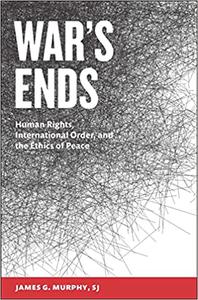 James G. Murphy, "War's Ends: Human Rights, International Order, and the Ethics of Peace" English | ISBN: 1626160279 | 2014 | 240 pages | EPUB | 1279 KB Before military action, and even before mobilization, the decision on whether to go to war is debated by politicians, pundits, and the public. As they address the right or wrong of such action, it is also a time when, in the language of the just war tradition, the wise would deeply investigate their true claim to jus ad bellum ("the right of war"). Wars have negative consequences, not the least impinging on human life, and offer infrequent and uncertain benefits, yet war is part of the human condition. |